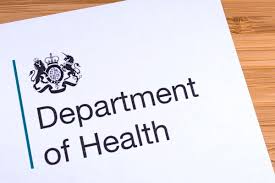
The Role of the Health Department in Safeguarding Community Health
Public health is a vital component of any society, and at the forefront of safeguarding the well-being of communities lies the health department. Tasked with a myriad of responsibilities, from disease prevention to health promotion, the health department plays a crucial role in ensuring that individuals and populations thrive in a safe and healthy environment.
Disease Surveillance and Control
One of the primary functions of the health department is to monitor and control the spread of infectious diseases within the community. Through robust surveillance systems, health officials track outbreaks, identify trends, and implement measures to prevent further transmission. By conducting investigations and implementing control strategies, such as vaccination campaigns or quarantine protocols, the health department plays a pivotal role in protecting public health.
Health Education and Promotion
Another key aspect of the health department’s work is to educate the public on preventive measures and promote healthy behaviours. Through community outreach programmes, workshops, and campaigns, health departments empower individuals to make informed decisions about their health. By raising awareness about issues such as nutrition, exercise, and mental well-being, they contribute to reducing the burden of chronic diseases and promoting overall wellness.
Environmental Health Monitoring
Ensuring a safe environment is essential for maintaining public health. The health department conducts inspections and monitors various aspects of environmental health, including water quality, air pollution, food safety standards, and sanitation practices. By enforcing regulations and implementing corrective actions when necessary, they help prevent environmental hazards that could pose risks to public health.
Emergency Preparedness and Response
In times of crisis or disaster, whether natural or man-made, the health department plays a critical role in coordinating emergency response efforts. From developing preparedness plans to mobilising resources during emergencies such as disease outbreaks or natural disasters, they are at the forefront of ensuring a swift and effective response to protect public health and safety.
Conclusion
The work of the health department is multifaceted and essential for maintaining the well-being of communities. By focusing on disease prevention, health promotion, environmental monitoring, and emergency preparedness, they contribute significantly to improving overall public health outcomes. It is through their dedication and expertise that we can strive towards creating healthier communities where individuals can thrive.
Frequently Asked Questions About the Health Department and Its Functions
- What department is health and social care?
- What are the functions of health and social care services?
- Who are the current health ministers?
- What do the Department of health do?
What department is health and social care?
The Health and Social Care department encompasses a wide range of services and initiatives aimed at promoting the well-being and welfare of individuals within society. It combines healthcare services focused on medical treatment and preventive care with social care services that support individuals with their daily living needs, such as social work, mental health support, and assistance for vulnerable populations. By integrating health and social care provisions, this department strives to address the holistic needs of individuals, fostering a comprehensive approach to improving overall quality of life and ensuring that everyone has access to the support they require for their physical, mental, and emotional well-being.
What are the functions of health and social care services?
Health and social care services encompass a wide range of functions aimed at promoting the well-being and welfare of individuals within a community. These services play a crucial role in providing medical treatment, preventive care, and support for those in need. Some key functions include delivering healthcare services such as diagnosis, treatment, and rehabilitation, as well as offering social support to enhance quality of life. Additionally, health and social care services focus on health education, disease prevention, mental health support, and social inclusion initiatives. By addressing the physical, emotional, and social needs of individuals, these services contribute to creating healthier and more resilient communities.
Who are the current health ministers?
The question of “Who are the current health ministers?” is a common inquiry related to the leadership and governance of healthcare systems. In the context of the UK, the current health ministers are responsible for overseeing and implementing policies that impact public health, healthcare services, and medical research. Their roles often involve addressing healthcare challenges, promoting health initiatives, and collaborating with various stakeholders to ensure the delivery of quality healthcare to the population. Stay informed about the individuals holding these positions as they play a crucial role in shaping the future of healthcare in the country.
What do the Department of health do?
The Department of Health plays a vital role in safeguarding public health and well-being. Its responsibilities encompass a wide range of functions, including disease surveillance and control, health education and promotion, environmental health monitoring, and emergency preparedness and response. From tracking infectious diseases to promoting healthy behaviours, ensuring safe environments, and coordinating emergency responses during crises, the Department of Health is dedicated to enhancing the overall health outcomes of communities. Through their expertise and commitment, they strive to create a healthier society where individuals can thrive and flourish.



